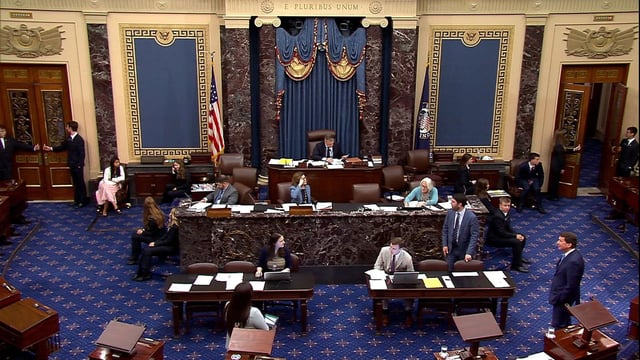Overview
- The Senate passed the GENIUS Act by a 68-30 vote after months of bipartisan negotiations and procedural hurdles
- The legislation requires stablecoin issuers to hold full reserves in liquid assets and disclose reserve compositions on a monthly basis
- Lawmakers opposing the bill warn it does not prevent the president or his family from profiting from stablecoins, fueling conflict-of-interest concerns
- Treasury Secretary Scott Bessent projects the framework could help grow stablecoin use into a $3.7 trillion market by 2030 and boost demand for U.S. Treasuries
- The House Financial Services Committee has advanced its own STABLE Act, setting the stage for lawmakers to reconcile both bills before final passage



